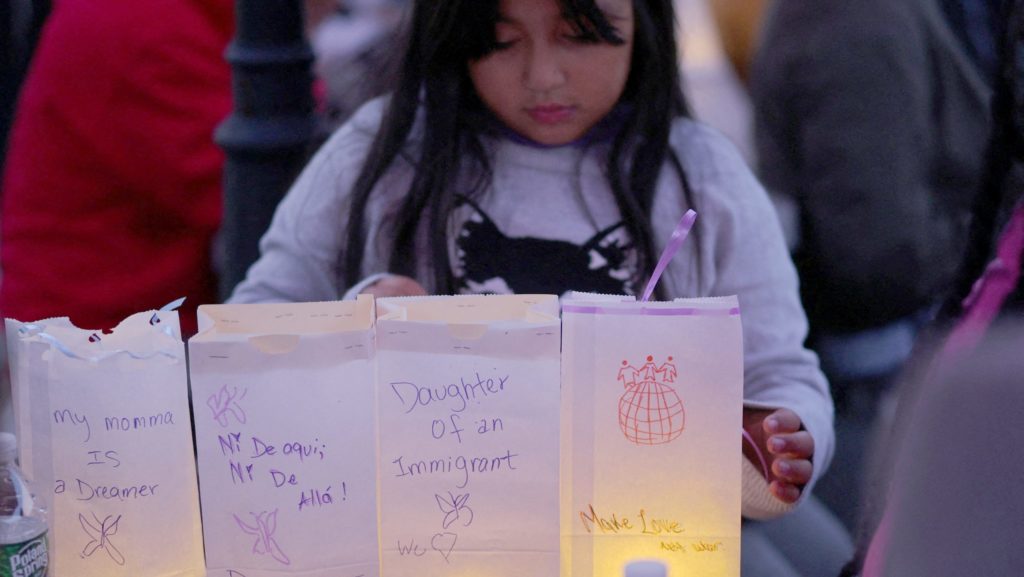Immigration has become the defining issue of our times.
Throughout Europe, popular political movements are rising in reaction to social tensions and disturbances caused by more than a decade of national policies that encouraged mass migration.
Similar forces are at work in our country, where an estimated one-quarter of voters described “immigration and the border” as their most pressing concern in the recent national elections.
The election results were more than a reaction to the previous administration’s loose border enforcement policies. They also reflect growing anxiety and fears about how the global economy is reshaping local economies and communities.
Many of our neighbors see immigrants as threats to their livelihoods. They are worried about crime, if there will be enough jobs, if our education and welfare systems can handle more people, and if our country will be able to integrate so many who are coming from different cultures.
Since January, the new administration in Washington has responded to these fears with a comprehensive crackdown on immigration.
It has closed the southern border to migrants, drastically cut the numbers of refugees it allows, and taken steps to limit the “temporary protected status” granted to those fleeing violence and political unrest in their home countries.
The administration is also restricting legal immigration, setting limits on guest worker programs, and imposing new rules for visas that businesses use to bring in temporary foreign workers.
Most disturbing, the government has been carrying out deportation raids in communities and workplaces across the country.
As a result of these policies, the administration reported recently that more than 2 million undocumented persons have been driven out of the country since January.
This is the context for the special message on immigration that the U.S. bishops issued at our annual meeting earlier this month. I urge every Catholic to read this important statement prayerfully.
My brother bishops and I have seen how this deportation policy is ruining people’s lives and breaking up families; in our parishes and neighborhoods, people are now living in constant fear.
Under the demand to meet quotas — reports say agents are expected to make 3,000 arrests every day — this policy is being carried out in harsh and indiscriminate ways.
Agents are not only picking up violent criminals, they are also detaining mothers and fathers, even grandparents, hardworking men and women who are pillars in our parishes and communities.
Some are being detained without charges or the ability to contact their families. Some are being held in centers that are not safe or clean and where they are denied access to religious services or counsel.
As pastors, we understand the popular anger about uncontrolled borders and large numbers of undocumented people in our country. But this is no way to defend the rule of law or the sovereignty of our great nation.
We are punishing individuals; and it is true, they have responsibility for their actions. But they are part of a system that for more than 40 years has been left broken by our leaders.
Many who are here illegally came with the implied understanding that the authorities would look the other way because businesses needed their labor.
Politicians, business leaders, and activist groups have long exploited this issue for their own advantage. That is why the problem persists.
It is telling that there are no hearings and hardly any conversation in Congress about reforming our immigration laws. The one bipartisan bill that has been introduced has only a handful of sponsors.
What is the responsibility of our leaders for the current crisis?
There is no question that our government has the right to enforce its immigration laws, including the use of deportation. Previous administrations have deported millions and faced little resistance or criticism.
But deportation is not the only way to hold people accountable for entering the country wrongfully.
Right now, after nearly a year of deportations and new immigration restrictions, the administration has the opportunity to pause and examine the way forward.
The border has been secured. The administration can use this moment to refocus its enforcement efforts on those who are truly a threat to public safety and order.
The administration can also work with Congress to address the reality that millions of undocumented men and women in this country have no criminal record and have been living and working here for decades.
These immigrants own homes, they run businesses, or work in jobs our society needs; they have children and grandchildren; they are good neighbors and faithful parishioners.
Surely a great nation can find a generous solution for these people — to hold them accountable for breaking our laws, but also to provide them with a pathway to a permanent legal status.
Pray for me and I will pray for you.
And let us ask our Blessed Mother Mary to help our leaders to find compassion, wisdom, and courage.

